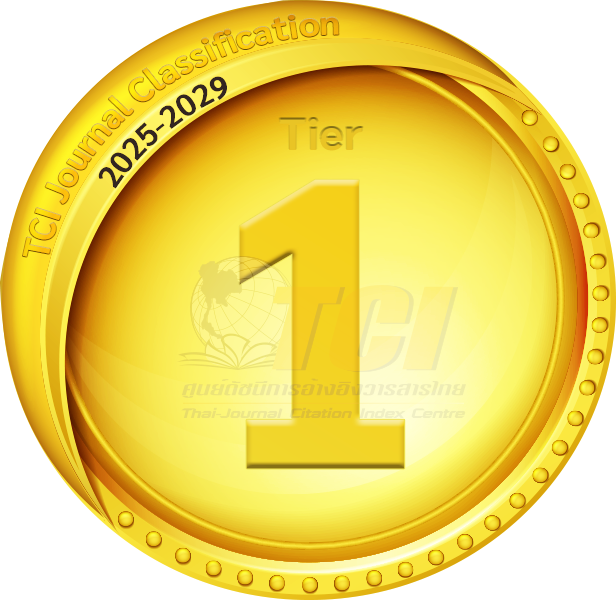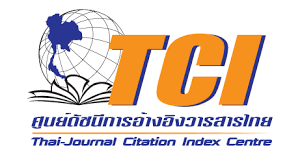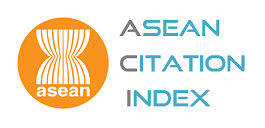The Sub-District Learning Curriculum Development for Healthy Community Profile Management at Phrom Nimit Sub-District, Nakhon Sawan Province, Thailand
- Chayaporn Boonruangsak , Faculty of Science and Technology, Nakhon Sawan Rajabhat University, Nakhon Sawan, Thailand, E-mail: dchayaporn@gmail.com
Abstract
This research is a qualitative research study with the purpose of studying the social capital and the community potential for a healthy community profile management and also studying the guidelines for the sub-district learning curriculum development in the healthy community profile management. The lessons were learned from 9 villages by using the rapid ethnographic community assessment process (RECAP), triangulation, content analysis, and story analysis. It was found that there were 30 places which had the potential of social capital for serving as the learning resources. The potential groups and the readiness of the learning resources for the sub-district learning curriculum development were classified into 7 learning systems: (1) participatory sub-district management system (2) community welfare system (3) safety agriculture system (4) community economy system (5) community learning system (6) community healthcare system, and (7) local wisdom system. The sub-district learning curriculum for a healthy community profile management was developed with participation by using local wisdom for local development. Regarding the guidelines for the sub-district learning curriculum development for healthy community profile management, there were 5 components: Menu 1 area profile and contexts; Menu 2 area management; Menu 3 learning process; Menu 4 innovation development, and Menu 5 directions of work implementation. This study reflected on utilizing the social capital and the community potential for sub-district planning and management. The communities perceived the importance in arranging and using the data for solving problems and serving the needs of the local areas with the determination to develop people’s quality of life.
Keywords: Sub-district learning curriculum development, Healthy community profile management, Social capital and Community potential, Learning resources
References
Andrews, J. O., Cox, M. J., Newman, S. D., Gillenwater, G., Warner, G., Winkler, J. A., ... & Slaughter, S. (2013). Training partnership dyads for community-based participatory research: Strategies and lessons learned from the community engaged scholars program. Health promotion practice, 14(4), 524-533. https://doi.org/10.1177/1524839912461273
Balhara, K. S., & Irvin, N. (2020). A Community Mural Tour: Facilitating Experiential Learning About Social Determinants of Health. The western journal of emergency medicine, 22(1), 60–62. https://doi.org/10.5811/westjem.2020.9.48738
Boonruangsak, C., Rujjanawarangkul, T., Suanjui, A., Yodlae, T., & Jaikaew, P. (2018). Curriculum Development for Learning in the Sub-Districts for the Local Administrative Organization Network, Thailand, Nakhon Sawan: Center for Academic Support and Management of Network for Building Livable Communities, Lower Northern Provincial Group.
Goytia, C. N., Todaro-Rivera, L., Brenner, B., Shepard, P., Piedras, V., & Horowitz, C. (2013). Community capacity building: a collaborative approach to designing a training and education model. Progress in community health partnerships : research, education, and action, 7(3), 291–299. https://doi.org/10.1353/cpr.2013.0031
Health in All Policies (HiAP) framework for country action. (2014). Health promotion international, 29(Suppl 1), i19–i28. https://doi.org/10.1093/heapro/dau035
Israel, B. A., Schulz, A. J., Parker, E. A., & Becker, A. B. (1998). Review of community-based research: assessing partnership approaches to improve public health. Annual review of public health, 19, 173–202. https://doi.org/10.1146/annurev.publhealth.19.1.173
Jenkins, C., Fagan, H. B., Passarella, J., Fournakis, N., & Burshell, D. (2020). Training Academic and Community Investigator Teams for Community-Engaged Research: Program Development, Implementation, Evaluation and Replication. Progress in community health partnerships : research, education, and action, 14(2), 229–242. https://doi.org/10.1353/cpr.2020.0019
Kaplan, S. A., & Gourevitch, M. N. (2020). Leveraging Population Health Expertise to Enhance Community Benefit. Frontiers in public health, 8, 88. https://doi.org/10.3389/fpubh.2020.00088
Kwon, S., Rideout, C., Tseng, W., Islam, N., Cook, W. K., Ro, M., & Trinh-Shevrin, C. (2012). Developing the community empowered research training program: building research capacity for community-initiated and community-driven research. Progress in community health partnerships : research, education, and action, 6(1), 43–52. https://doi.org/10.1353/cpr.2012.0010
Lenzi, A., Capolongo, S., Ricciardi, G., Signorelli, C., Napier, D., Rebecchi, A., & Spinato, C. (2020). New competences to manage urban health: Health City Manager core curriculum. Acta bio-medica : Atenei Parmensis, 91(Suppl 3), 21–28. https://doi.org/10.23750/abm.v91i3-S.9430
Luger, T. M., Hamilton, A. B., & True, G. (2020). Measuring Community-Engaged Research Contexts, Processes, and Outcomes: A Mapping Review. The Milbank quarterly, 98(2), 493–553. https://doi.org/10.1111/1468-0009.12458
Macassa, G. (2021). Social Enterprise, Population Health and Sustainable Development Goal 3: A Public Health Viewpoint. Annals of global health, 87(1), 52. https://doi.org/10.5334/aogh.3231
Mauti, J., Gautier, L., Agbozo, F., Shiroya, V., Jessani, N. S., Tosun, J., & Jahn, A. (2022). Addressing Policy Coherence Between Health in All Policies Approach and the Sustainable Development Goals Implementation: Insights From Kenya. International journal of health policy and management, 11(6), 757–767. https://doi.org/10.34172/ijhpm.2020.212
Mourits, K., van der Velden, K., & Molleman, G. (2021). The perceptions and priorities of professionals in health and social welfare and city planning for creating a healthy living environment: a concept mapping study. BMC public health, 21(1), 1085. https://doi.org/10.1186/s12889-021-11151-7
National Academies of Sciences, Engineering, and Medicine. (2020). A Framework for Educating Health Professionals to Address the Social Determinants of Health. Retrieved from https://www.ncbi.nlm.nih.gov/books/NBK395984/
Nuntaboot, K., Boonsawaskulchai, P., Hengboonyaphan, D., Boonruangsak, C., Rattanadilok Na Phuket, N., Lekjaroen, N., & Inthonglang, K. (2018). Community Research Using Rapid Ethnographic Community Assessment Process. Thailand, Bangkok: Thai Health Promotion Foundation.
Office of Disease Prevention and Health Promotion. (2020). Social Determinants of Health. Retrieved from https://www.healthypeople.gov/2020/topics-objectives/topic/social-determinants-of-health
Postma, J., & Ramon, C. (2016). Strengthening Community Capacity for Environmental Health Promotion through Photovoice. Public health nursing (Boston, Mass.), 33(4), 316–324. https://doi.org/10.1111/phn.12243
Ramirez-Rubio, O., Daher, C., Fanjul, G., Gascon, M., Mueller, N., Pajín, L., ... & Nieuwenhuijsen, M. J. (2019). Urban health: an example of a “health in all policies” approach in the context of SDGs implementation. Globalization and health, 15(1), 1-21. https://doi.org/10.1186/s12992-019-0529-z
Ryus, C. R., Yang, D., Tsai, J., Meldrum, J., & Ngaruiya, C. (2021). Using community-based participatory research methods to inform care for patients experiencing homelessness: An opportunity for resident education on health care disparities. AEM education and training, 5(Suppl 1), S121–S125. https://doi.org/10.1002/aet2.10681
Shankardass, K., Muntaner, C., Kokkinen, L., Shahidi, F. V., Freiler, A., Oneka, G., ... & O’Campo, P. (2018). The implementation of Health in All Policies initiatives: a systems framework for government action. Health research policy and systems, 16(1), 1-10. https://doi.org/10.1186/s12961-018-0295-z
Stupplebeen, D. A., Barnett-Sherrill, A. T., & Sentell, T. L. (2019). Community health workers in Hawai ‘i: A scoping review and framework analysis of existing Evidence. Hawai'i Journal of Medicine & Public Health, 78(6 Suppl 1), 6-14.
Thai Health Promotion Foundation. (2015). Thai Health Master Plan B.E. 2558 – 2560 (2015 – 2017). Retrieved from https://www.thaihealth.or.th/Books/422/%E0%B9%81%E0%B8%9C%E0%B8%99%E0%B8%AB%E0%B8%A5%E0%B8%B1%E0%B8%81%20%E0%B8%AA%E0%B8%AA%E0%B8%AA.%202558-2560.html
Thai Health Promotion Foundation. (2017). Thai Health Master Plan B.E. 2560 – 2563 (2017 – 2020). Retrieved from https://www.thaihealth.or.th/Books/509/%E0%B9%81%E0%B8%9C%E0%B8%99%E0%B8%AB%E0%B8%A5%E0%B8%B1%E0%B8%81%20%E0%B8%AA%E0%B8%AA%E0%B8%AA.%202561-2563.html, accessed November 2020.
World Health Organization. (2020). Social determinants of health: what are social determinants of health?. Retrieved from https://www.who.int/social_determinants/en/

Indexed in


Search